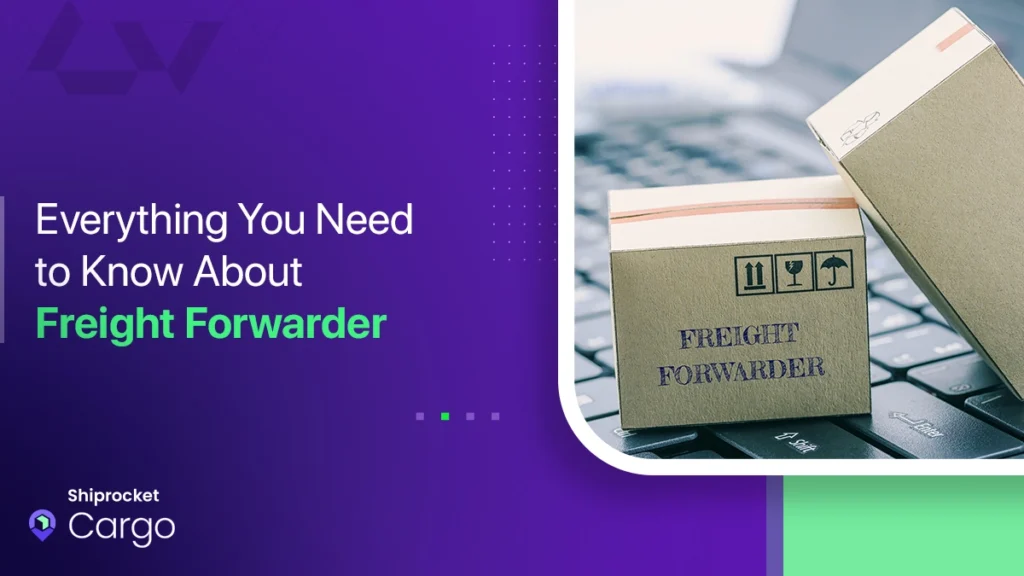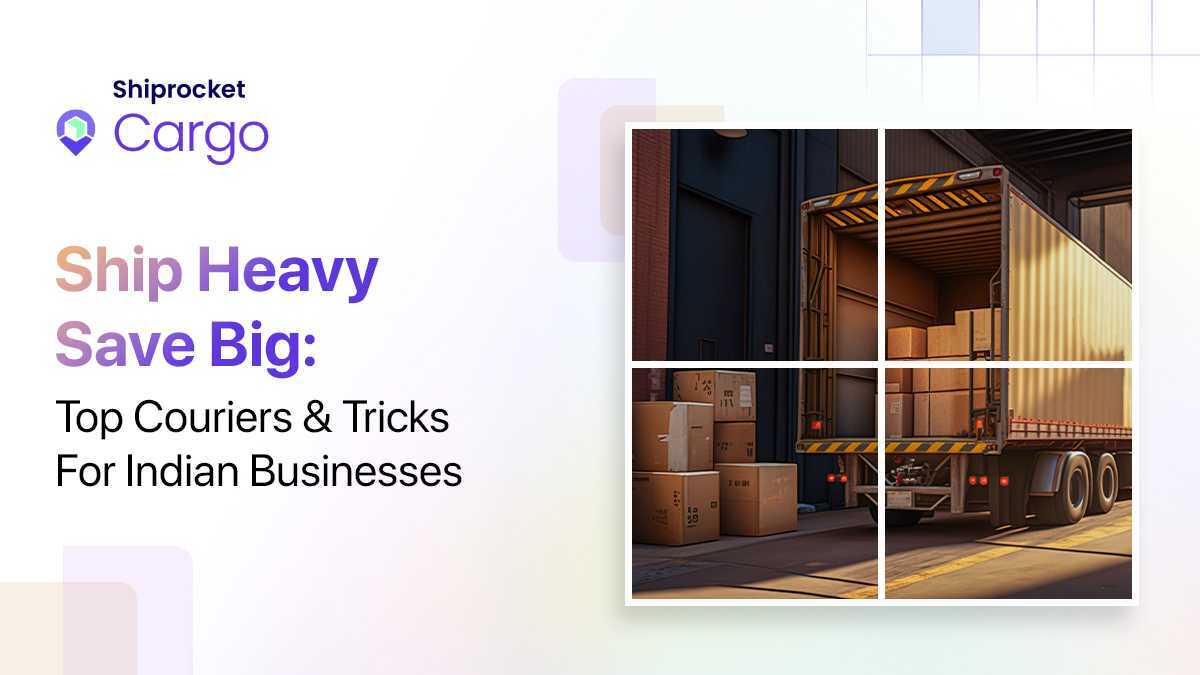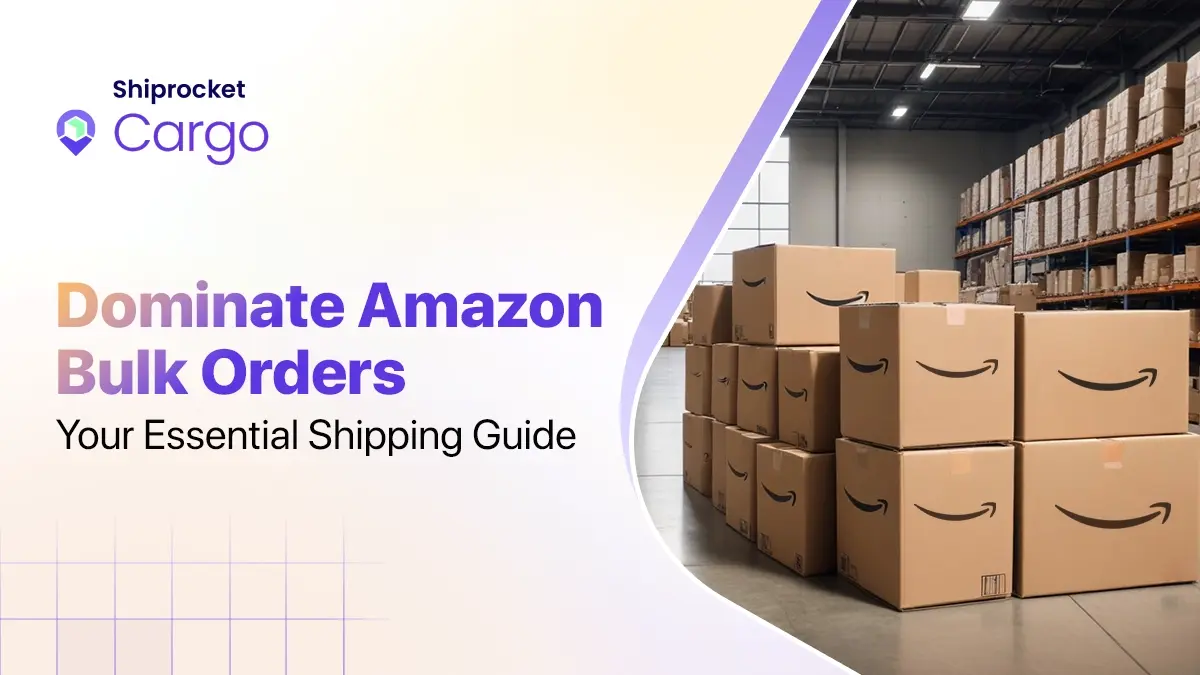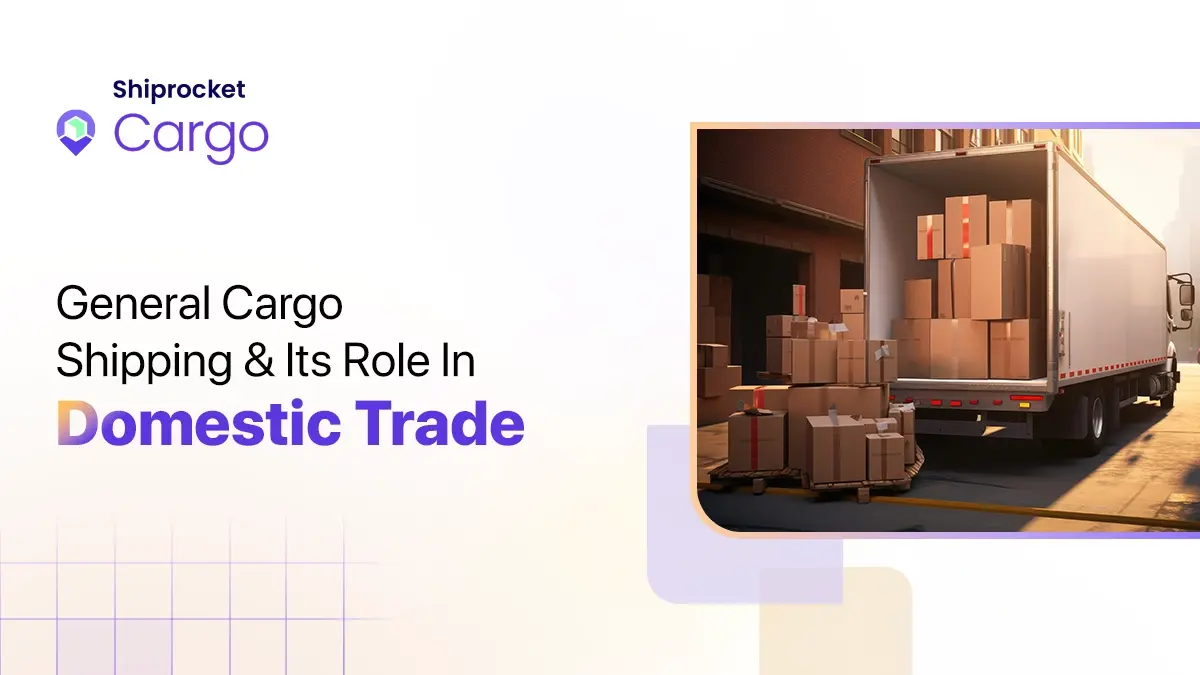What Is a Freight Forwarder & Why Do You Need One?

The Indian eCommerce market has been growing rapidly in recent years and is expected to continue to do so in the coming years. According to the Shiprocket CII report, the eCommerce market in India is projected to reach $214 billion by 2027, up from $70 billion in 2022.
This growth can be attributed to various factors, including the increasing adoption of smartphones and the internet, the rise of online marketplaces, and the availability of affordable data plans. Additionally, the COVID-19 pandemic has accelerated the shift toward online shopping, with consumers opting for contactless delivery options.
The Importance of Freight Forwarders in the Indian eCommerce Market
Freight forwarders play a critical role in the Indian eCommerce market, facilitating the movement of goods from sellers to buyers. As eCommerce transactions often involve cross-border shipments, freight forwarders help ensure the process is smooth and efficient.
Freight forwarders offer a range of services, including transportation, customs clearance, and documentation. They also help eCommerce businesses optimize their supply chain, reduce costs, and manage risks.
We have constantly been talking about freight forwarders. But who they are and how they work is something that has not been discussed yet. So let’s look at the definition of freight forwarders.
What Is a Freight Forwarder?
A freight forwarder is a third-party logistics provider that helps businesses transport their goods from one location to another. Freight forwarders act as intermediaries between shippers and carriers, ensuring that goods are transported efficiently and cost-effectively. Freight forwarders can handle all aspects of the shipping process, including arranging transportation, completing shipping documentation, and dealing with customs regulations.
How Do Freight Forwarders Work?
The freight forwarders handle all aspects of the shipping process on your behalf. This includes arranging transportation, completing shipping documentation, and dealing with customs regulations. Freight forwarders have extensive knowledge of shipping regulations and can help ensure that your goods are transported in compliance with all relevant laws and regulations.
Why Do You Need a Freight Forwarder for Your Business?
In the Indian eCommerce market, freight forwarders play a critical role in solving various challenges that eCommerce businesses may encounter. Some of the eCommerce challenges freight forwarders help to overcome are:
Infrastructure Challenges
One of the major challenges the Indian eCommerce businesses face is the lack of developed logistics infrastructure. Poor road and transportation networks, as well as outdated warehousing and distribution systems, can lead to delays and inefficiencies in the shipping process.
Freight forwarders can help overcome these challenges by providing end-to-end logistics solutions. They have the expertise and resources to optimize supply chains and ensure that goods are transported efficiently and cost-effectively. Freight forwarders can also provide value-added services such as warehousing and distribution, which can help eCommerce businesses to streamline their operations.
Customs Regulations
Customs regulations in India can be complex and vary depending on the destination state. eCommerce businesses that are not familiar with these regulations may face delays or additional costs.
Freight forwarders have the knowledge and expertise to navigate customs regulations and ensure that shipments comply with all necessary requirements. They can also provide advice on tariff classifications, documentation requirements, and customs clearance procedures. By working with a freight forwarder, eCommerce businesses can avoid costly mistakes and ensure that their shipments arrive on time and in good condition.
Communication Issues
Effective communication is crucial in the eCommerce supply chain. However, language barriers and cultural differences can make communication difficult, particularly when dealing with suppliers and customers in different countries.
Freight forwarders can help bridge these communication gaps by providing translation services and acting as intermediaries between parties. They can also provide real-time tracking and monitoring of shipments, which can help to keep all parties informed and reduce the risk of miscommunication.
Payment and Financial Transactions
Cross-border eCommerce transactions can be complex, particularly when it comes to financial transactions. Currency exchange rates, transaction fees, and payment processing times can all impact the cost and speed of transactions.
Freight forwarders can help to simplify payment and financial transactions by offering a range of payment options and currency exchange services. They can also provide advice on the most cost-effective and efficient payment methods for eCommerce businesses.
Returns and Refunds
Returns and refunds are an essential part of eCommerce, but they can be challenging for eCommerce businesses that operate in multiple countries. Different countries have different regulations and requirements for returns and refunds, which can lead to confusion and delays.
Freight forwarders can help to simplify the returns and refund process by providing guidance on local regulations and requirements. They can also handle the logistics of returning goods, including transportation, customs clearance, and documentation.
Benefits of Having a Freight Forwarder for Your Business?
The Indian eCommerce market is rapidly growing, and as it does, the need for efficient logistics solutions is becoming increasingly important. Freight forwarders can provide a range of benefits to eCommerce businesses operating in India, including the following:
Expertise in Logistics
Freight forwarders have the expertise and resources to optimize the logistics supply chain for eCommerce businesses. They can help identify the most efficient and cost-effective transportation routes and provide end-to-end logistics solutions, including warehousing and distribution. This can help eCommerce businesses to streamline their operations and improve their bottom line.
Cost Savings
Freight forwarders can help eCommerce businesses save money by providing cost-effective logistics solutions. They have the knowledge and experience to negotiate favorable rates with carriers, which can help reduce transportation costs. Freight forwarders can also provide advice on the most efficient transportation modes, which can help to minimize shipping costs.
Customs Compliance
Freight forwarders have the knowledge and expertise to navigate complex customs regulations in India. They can help eCommerce businesses ensure that their shipments comply with all necessary requirements, including tariff classifications, documentation, and clearance procedures. This can help to avoid costly delays and penalties.
Risk Management
Freight forwarders can help eCommerce businesses manage risks associated with global shipping. They can provide insurance coverage for shipments, as well as help businesses mitigate risks associated with lost or damaged goods. This can help provide peace of mind for eCommerce businesses operating in India.
Conclusion
Freight forwarders play a critical role in overcoming the challenges of the Indian eCommerce market. By providing end-to-end logistics solutions, navigating complex customs regulations, bridging communication gaps, simplifying payment and financial transactions, and handling returns and refunds, freight forwarders help eCommerce businesses operate efficiently and cost-effectively in the global market.
Frequently Asked Questions
Q1. What to look for while selecting the right freight forwarder for your business?
When choosing a freight forwarder, consider factors such as their experience and expertise, reputation, price, and customer service. It’s important to do your research and choose a provider that aligns with your business needs.
Q2. What are the benefits of using a freight forwarder?
The benefits of using a freight forwarder include expertise in shipping regulations, efficiency in the shipping process, cost savings, and risk management.



